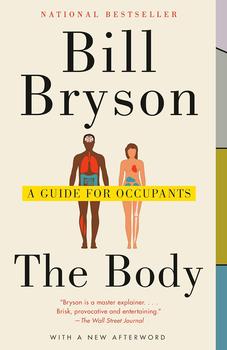Summary | Excerpt | Reviews | Beyond the book | Read-Alikes | Genres & Themes | Author Bio

Predators, Parasites, and Partners That Shape Who We Are Today
by Rob DunnA biologist shows the influence of wild species on our well-being and the world and how nature still clings to us - and always will.
We evolved in a wilderness of parasites, mutualists, and pathogens, but we no longer see ourselves as being part of nature and the broader community of life. In the name of progress and clean living, we scrub much of nature off our bodies and try to remove whole kinds of life - parasites, bacteria, mutualists, and predators - to allow ourselves to live free of wild danger. Nature, in this new world, is the landscape outside, a kind of living painting that is pleasant to contemplate but nice to have escaped.
The truth, though, according to biologist Rob Dunn, is that while "clean living" has benefited us in some ways, it has also made us sicker in others. We are trapped in bodies that evolved to deal with the dependable presence of hundreds of other species. As Dunn reveals, our modern disconnect from the web of life has resulted in unprecedented effects that immunologists, evolutionary biologists, psychologists, and other scientists are only beginning to understand. Diabetes, autism, allergies, many anxiety disorders, autoimmune diseases, and even tooth, jaw, and vision problems are increasingly plaguing bodies that have been removed from the ecological context in which they existed for millennia.
In this eye-opening, thoroughly researched, and well-reasoned book, Dunn considers the crossroads at which we find ourselves. Through the stories of visionaries, Dunn argues that we can create a richer nature, one in which we choose to surround ourselves with species that benefit us, not just those that, despite us, survive.
Some readers may feel that the message biologist and noted science writer Rob Dunn conveys is somewhat unsavory, but no one can deny his delivery is outstanding. In other words, you won't want to shoot this messenger just because his assertions have a certain "ew" factor. With a brio and rakish good humor only a biologist can bring to the table, Dunn details exactly how "biological" we human beings are - even as we try our darnedest to separate ourselves from the microscopic, symbiotic critters he calls "mutualists."..continued
Full Review
 (536 words)
(536 words)
(Reviewed by Donna Chavez).
 In an article in The Daily Telegraph, Dr. Roy Sleator, a lecturer at Cork Institute of Technology in Ireland, states that, "We are, in essence, only 10 percent human. The rest is pure microbe." In a June 2011 report, National Public Radio's Science Desk Correspondent, Robert Krulwich, agrees. Yes, he says, our bodies do indeed consist of roughly ten times more microbial cells than human cells. And they are, for the most part, not just handy but essential to our existence. Especially the ones inside our intestinal tract.
In an article in The Daily Telegraph, Dr. Roy Sleator, a lecturer at Cork Institute of Technology in Ireland, states that, "We are, in essence, only 10 percent human. The rest is pure microbe." In a June 2011 report, National Public Radio's Science Desk Correspondent, Robert Krulwich, agrees. Yes, he says, our bodies do indeed consist of roughly ten times more microbial cells than human cells. And they are, for the most part, not just handy but essential to our existence. Especially the ones inside our intestinal tract.
Krulwich goes on to report the recent discovery that different people the world over have varying sets of intestinal microbes. These sets of microbes have been found to determine whether or not we are susceptible to ...

If you liked The Wild Life of Our Bodies, try these:

by Bill Bryson
Published 2021
Bill Bryson, bestselling author of A Short History of Nearly Everything, takes us on a head-to-toe tour of the marvel that is the human body. As addictive as it is comprehensive, this is Bryson at his very best, a must-read owner's manual for everybody.

by Michael E. McCullough
Published 2020
A sweeping psychological history of human goodness -- from the foundations of evolution to the modern political and social challenges humanity is now facing.